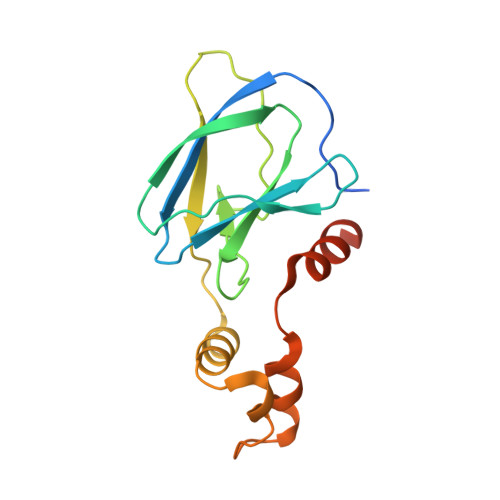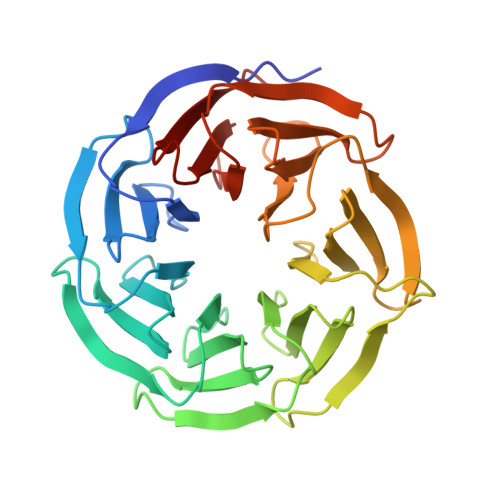A selective WDR5 degrader inhibits acute myeloid leukemia in patient-derived mouse models.
Yu, X., Li, D., Kottur, J., Shen, Y., Kim, H.S., Park, K.S., Tsai, Y.H., Gong, W., Wang, J., Suzuki, K., Parker, J., Herring, L., Kaniskan, H.U., Cai, L., Jain, R., Liu, J., Aggarwal, A.K., Wang, G.G., Jin, J.(2021) Sci Transl Med 13: eabj1578-eabj1578
- PubMed: 34586829
- DOI: https://doi.org/10.1126/scitranslmed.abj1578
- Primary Citation of Related Structures:
7JTO, 7JTP - PubMed Abstract:
Interactions between WD40 repeat domain protein 5 (WDR5) and its various partners such as mixed lineage leukemia (MLL) and c-MYC are essential for sustaining oncogenesis in human cancers. However, inhibitors that block protein-protein interactions (PPIs) between WDR5 and its binding partners exhibit modest cancer cell killing effects and lack in vivo efficacy. Here, we present pharmacological degradation of WDR5 as a promising therapeutic strategy for treating WDR5-dependent tumors and report two high-resolution crystal structures of WDR5-degrader-E3 ligase ternary complexes. We identified an effective WDR5 degrader via structure-based design and demonstrated its in vitro and in vivo antitumor activities. On the basis of the crystal structure of an initial WDR5 degrader in complex with WDR5 and the E3 ligase von Hippel–Lindau (VHL), we designed a WDR5 degrader, MS67, and demonstrated the high cooperativity of MS67 binding to WDR5 and VHL by another ternary complex structure and biophysical characterization. MS67 potently and selectively depleted WDR5 and was more effective than WDR5 PPI inhibitors in suppressing transcription of WDR5-regulated genes, decreasing the chromatin-bound fraction of MLL complex components and c-MYC, and inhibiting the proliferation of cancer cells. In addition, MS67 suppressed malignant growth of MLL-rearranged acute myeloid leukemia patient cells in vitro and in vivo and was well tolerated in vivo. Collectively, our results demonstrate that structure-based design can be an effective strategy to identify highly active degraders and suggest that pharmacological degradation of WDR5 might be a promising treatment for WDR5-dependent cancers.
Organizational Affiliation:
Mount Sinai Center for Therapeutics Discovery, Icahn School of Medicine at Mount Sinai, New York, NY 10029, USA.



















